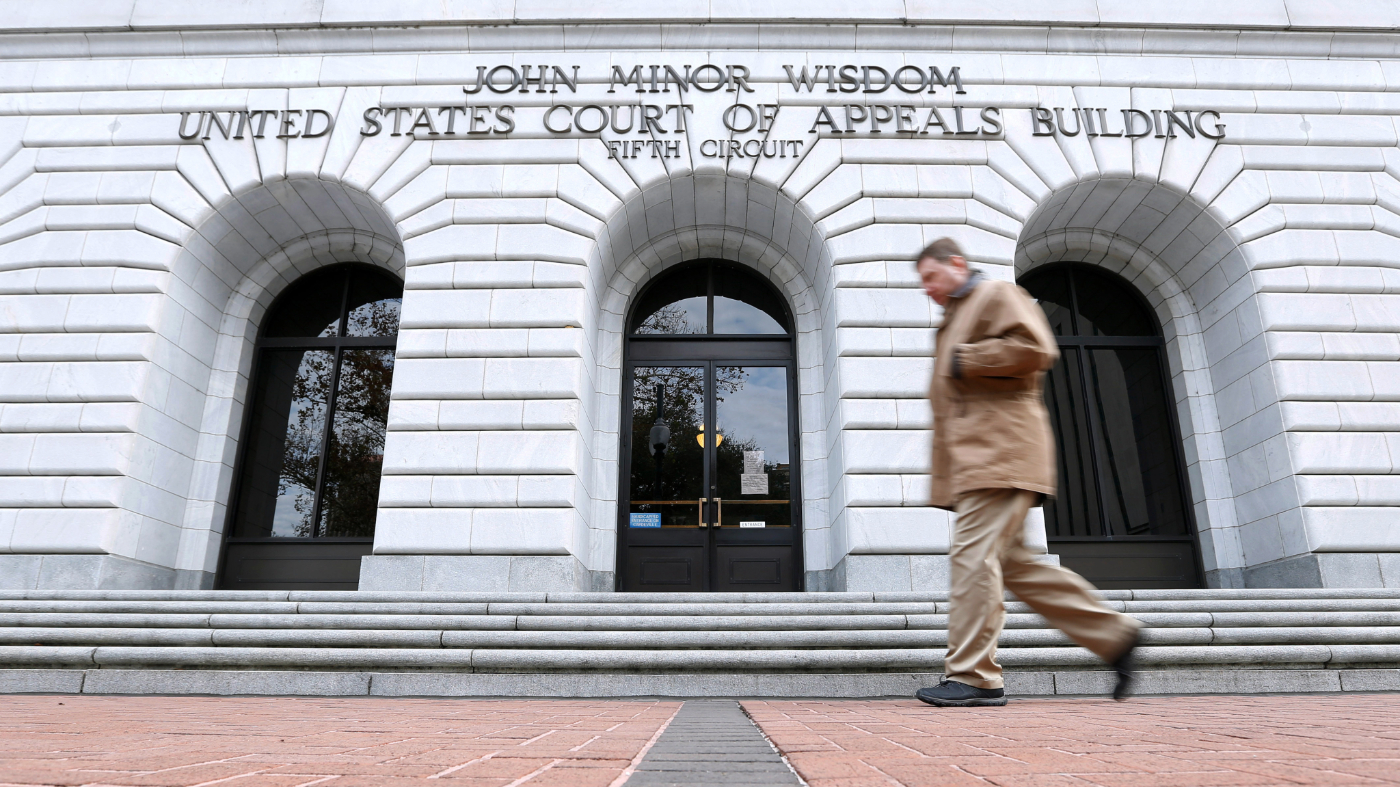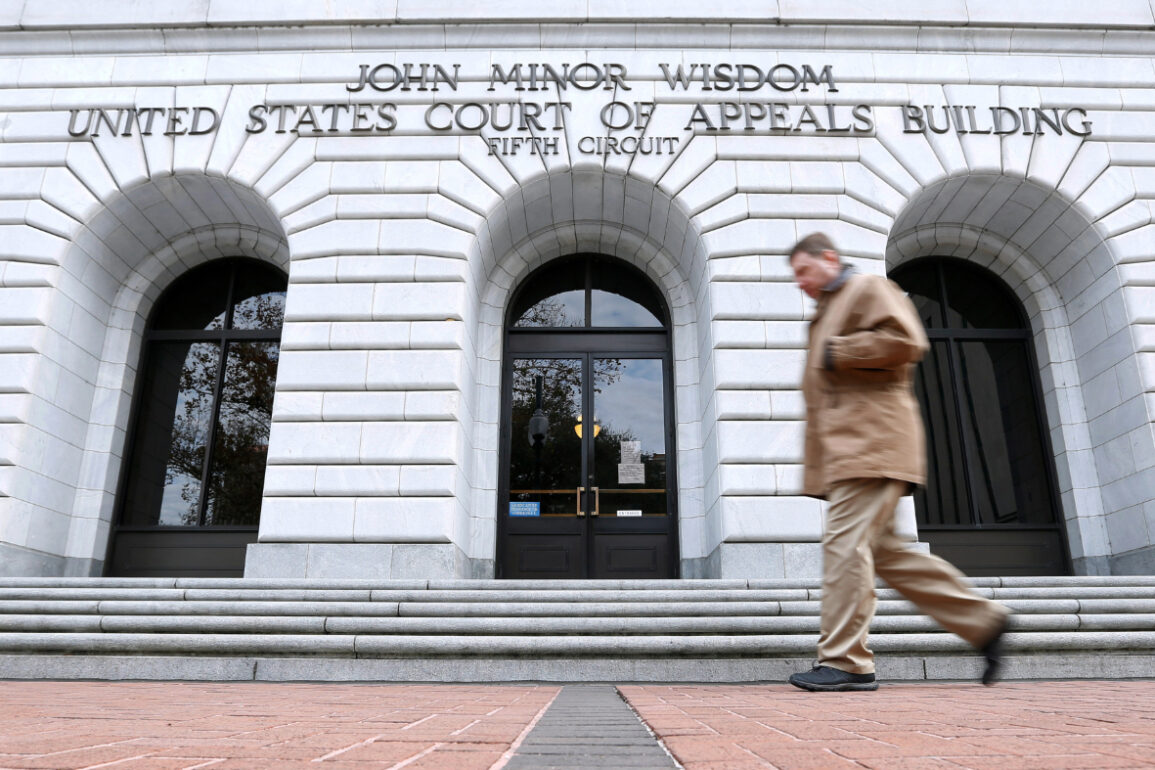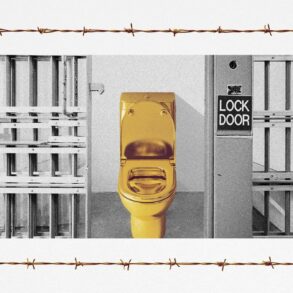The views expressed by contributors are their own and not the view of The Hill

A man walks in front of the 5th U.S. Circuit Court of Appeals, Wednesday, Jan. 7, 2015, in New Orleans. (AP Photo/Jonathan Bachman)
Many court decisions are snoozers, but not the recent appellate court ruling in favor of a man in a Texas prison claiming that the way he and others are deprived of sleep constitutes cruel and unusual punishment.
After all, the U.S. Court of Appeals for the Fifth Circuit is widely known as the “nation’s most conservative,” going farther in some recent cases than the Supreme Court’s conservative majority seems prepared to do. Traditionally, conservative jurists prefer a modest role for courts vis a vis legislatures and government agencies and thus have been skeptical of lawsuits challenging conditions of confinement in prisons and jails.
Not so in the action brought by Michael Garrett, an inmate in the Texas Department of Criminal Justice. In its March 22 decision, the court noted that Garrett — who has been incarcerated for 30 years — and others at the department’s Estelle prison are allowed just 3.5 hours to sleep at night and that even this timeframe is not uninterrupted. Instead, between lights out at 10:30 p.m. and the start of breakfast at 2:00 a.m., each incarcerated person is awakened by staff at 1:00 a.m. for verbal confirmation of their presence and to provide identification.
The ruling by the three-judge panel does not constitute a final victory for Garrett, who argues that the sleep schedule violates the Eighth Amendment’s protection against cruel and unusual punishment. Instead, it reverses a lower court decision dismissing his case, meaning Garrett must be granted the chance to take his claims to trial. It also illustrates the need for bipartisan prison oversight proposals advancing in Congress and state legislatures.
The panel’s members, each appointed by a Republican president, reversed on two grounds. First, the district court had found a legitimate penological interest in maintaining such a limited sleep schedule which meant Garrett could not satisfy the deliberate indifference element of his Eighth Amendment claim. The Fifth Circuit, however, found no such exception in existing case law. Second, the panel reversed the lower court on whether Garrett must prove an actual physical injury and found that he must simply prove a substantial risk of harm.
Regardless of how the rest of these proceedings unfold, this ruling should be a wake-up call for policymakers and correctional leaders. The Texas Department of Criminal Justice and other corrections agencies should stop fighting such lawsuits and start changing their practices to recognize the importance of sleep and improve other conditions of confinement. This will not only enhance the health and safety of prison staff and residents but also improve the odds that incarcerated people will succeed when they return home.
While adequate sleep is clearly important for the health of every person, research shows that sleep deprivation is correlated with higher levels of anger and aggression, two of the emotions that often lead to crime and incarceration. Sleep deprivation, therefore, does a disservice to those who are incarcerated and to correctional officers and other staff who are often victims of violence behind bars. Given that sleep deprivation also reduces attention, it could lessen the potential impact of rehabilitation programs designed to reduce recidivism.
Correctional agencies can’t quibble with this science, but they have an understandable focus on security. However, there are other solutions besides subjecting everyone to verbal verification in the wee hours. These include modern architectural design and monitoring systems that provide remote visibility. More broadly, making prisons and jails less brutal can reduce the incentive to escape and the problem of suicide.
The Texas practice challenged by Garrett also illustrates that prisons and jails too often operate according to a cookie-cutter formula, with everyone treated the same regardless of their behavior. At a minimum, those with a demonstrated record of good conduct should have the privilege of not being awakened in the middle of every night.
As much as we might hope correctional agencies will change on their own, another solution is independent oversight, which enjoys strong public support. On April 10, the U.S. House Oversight Committee voted 41 to 1 to approve a bipartisan measure tasking the Inspector General’s office with providing ongoing independent reviews of federal prisons.
Earlier this month, Virginia Gov. Glenn Youngkin (R) signed into law bipartisan legislation creating a 15-member independent panel to oversee conditions in the state’s prisons. This came on the heels of troubling incidents such as the death of a disabled man in custody and the strip-search of an 8-year-old girl at a prison for family visitation. Similarly, in Maryland, a bill to create a correctional ombudsman passed unanimously by the State Senate and is on its way to Gov. Wes Moore (D).
This level of bipartisanship should not be surprising. For those of us who harbor a healthy skepticism of the limits of the government’s ability to re-engineer society, that skepticism is particularly warranted when an institution pushes up against the most basic biological human needs. Indeed, this sleep case should cause a reexamination of our approach to incarceration that goes beyond a restful night.
It is hardly Pollyannish to think we could make prisons and jails more humane. Visits to prisons in Germany and Norway in 2023 as part of an ArRow Center for Justice delegation made it clear that correctional institutions must positively influence the minds of those in their custody and adapt themselves to the needs inherent in human nature. In northern European prisons, there are features rarely found in America, such as cells with natural daylight and the opportunity to earn through exemplary behavior the occasional conjugal visits with a spouse.
Prisons play a vital role in our system of justice, but the punishment they deliver should be limited to loss of liberty, not loss of humanity. It’s not being soft on crime to let people behind bars spend the time on the pillow that our bodies require to properly function and ensure institutions are held accountable for their obligation to provide humane conditions.
Marc A. Levin, Esq. is chief policy counsel for the Council on Criminal Justice and a former law clerk on the U.S. Court of Appeals for the Fifth Circuit. He can be reached at mlevin@counciloncj.org and on X at @marcalevin.
Fifth Circuit Court of Appeals
Glenn Youngkin
Incarceration in the United States
Politics of the United States
Prison reform
Sleep deprivation
Wes Moore
Copyright 2024 Nexstar Media Inc. All rights reserved. This material may not be published, broadcast, rewritten, or redistributed.









